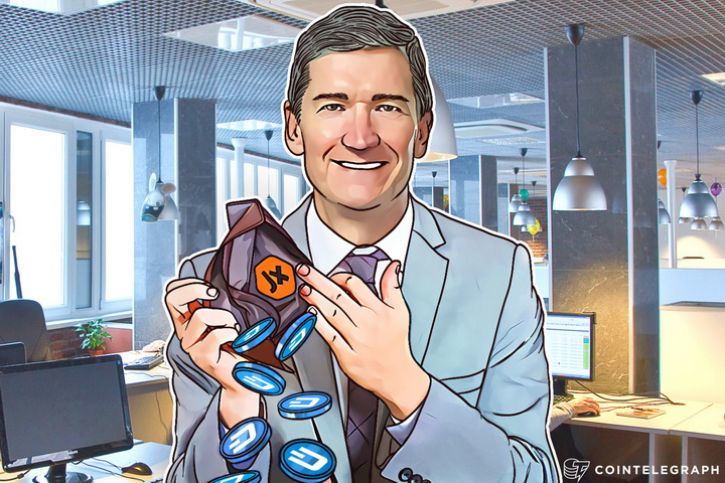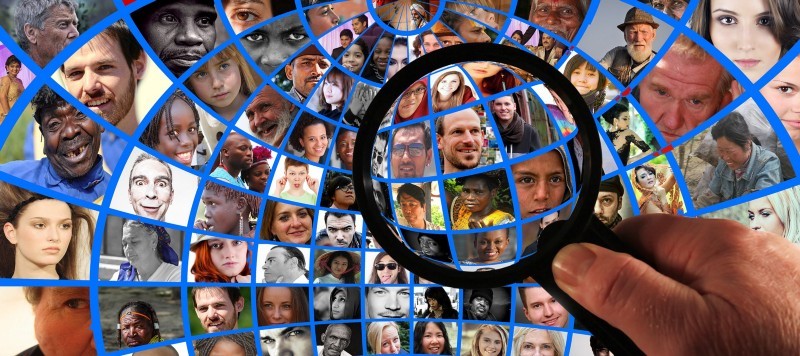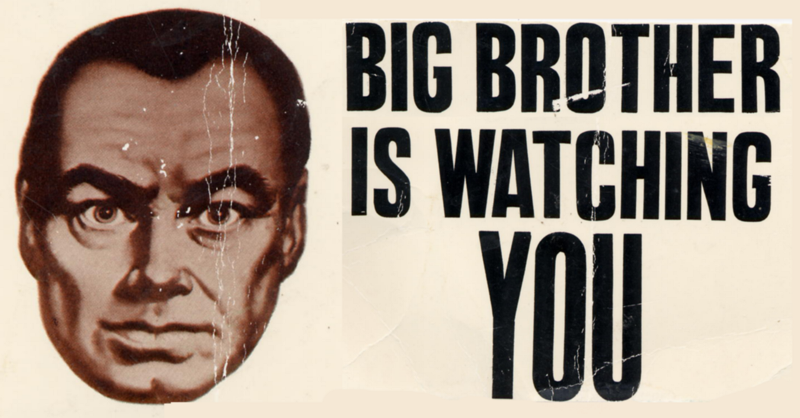Apple vs cryptocurrency Dash: privacy is at stake

Cryptocurrency technology is called the “Internet of money”, and they actually act as the actual money for the Internet. Cryptocurrencies live and breathe on the Internet; they cannot function without it. Today, “being on the Internet” means being available on mobile devices, and without mobile devices, cryptocurrency would be significantly restricted in use. No one will carry a computer or laptop in a cafe with them to pay for their morning coffee. Therefore, mobile cryptocurrency wallets are important for the development of the cryptocurrency industry.
Fortunately, in recent years many mobile wallets for Bitcoin have been created, for example, BreadWallet , Mycelium and Jaxx . Wallets first appeared on Android, because Apple did not approve the placement of Bitcoin wallets in the AppStore. Over time, Apple has given way, and now the Bitcoin wallets are available on the AppStore along with applications for other cryptocurrencies, for example, Ethereum, Litecoin and Dogecoin.
Dash's thorny path to Apple approval
But Apple stubbornly refuses to approve the addition to the AppStore wallet for one of the leading market capitalization of cryptocurrency, Dash , which focuses on ensuring privacy payments. Initially, the Dash team sent a request to add an Apple Wallet to the AppStore, which was a fork of the BreadWallet already accepted (for Bitcoin). But Apple has repeatedly rejected it without explaining any reasons. Considering that the wallet sent for consideration was almost identical to the previously approved Bitcoin wallet, with the exception of working cryptocurrency, it can be assumed that Apple had claims to the Dash project itself.
')

Later, the problems of Dash with the placement in the App Store took a strange turn. Recently, the multi-currency wallet Jaxx added Dash support to its previously approved application. Jaxx wallet by this time supported Bitcoin, Ethereum and theDAO. Thus, Dash has become just another tab in its interface. But soon after the update in the AppStore, Apple contacted the Jaxx developers and asked them to remove Dash support from Jaxx . Apple representatives said they approve e-wallets for only a few cryptocurrencies, namely Bitcoin, Ethereum, Litecoin, Dogecoin, Ripple and theDAO. Some have suggested that Apple refuses Dash precisely because of its privacy, because Dash gives users the ability to hide their transactions in the blockchain using PrivateSend technology.
Of course, Apple, as a private company, has every right to decide which applications will be available in its AppStore, as well as users have the full right not to use Apple products, if they do not agree with these decisions. But the likelihood that it was Apple’s failure to secure the financial privacy of the Dash cryptocurrency caused Apple to be the cause of the greatest concern in this situation.
Privacy fight

If this is true, then Apple probably just wants to avoid responsibility. For example, a terrorist can use Dash through a Jaxx wallet to send money, which is then used to purchase a nuclear bomb; it will explode in orbit and post-apocalypse (and the like) will occur in the world. And Apple will have to answer before the High Court for a bleak future. I’m sure that Apple’s lawyers (along with some nameless government officials) will be able to describe a more beautiful look, but you get the idea.
This fear and risk aversion is, unfortunately, a common occurrence after the events of September 11. I recently read Glenn Greenwald's book No Place to Hide (“Nowhere to Hide”). The author is a journalist who first spoke with Edward Snowden and read the secret documents he disclosed, and in the book he describes in detail his impressions and knowledge gained. He writes that one of the basic principles of the modern US National Security Agency (NSA) is “we collect everything and everywhere”.
This means that now the mission of the NSA is not only to check international messages for threats to the United States, but also to collect all messages altogether, everywhere. And they literally collect everything: from your personal email. messages and phone calls to bank transfers and browsing history. Totally collecting all the information, they believe that they will be able to better track potential threats to their homeland (for the time being I’ll omit the argument about what is meant by “threats” in a broad sense). In other words, the US government wants privacy in principle to remain in the past. This includes financial privacy. Most people are unaware of how closely they monitor their regular financial transactions. Financial institutions in the United States must report not only suspicious activity, but also any activity in excess of a certain amount that passes through their banking systems.
Meanwhile, there are cryptocurrencies, such as Bitcoin. When Bitcoin appeared, it earned a reputation as an “anonymous” currency, that is, you could use it online, and your transactions could not be traced. Its use in DarkNet secured such a reputation, and Bitcoin became the object of close attention of federal regulatory agencies and three-letter organizations, such as the NSA and the CIA. But after a while, people realized that Bitcoin was not really an anonymous currency. In the future, many add-on companies over Bitcoin decided to cooperate with regulatory authorities and follow the same reporting rules that banking institutions adhere to. In a sense, Bitcoin has become “approved” cryptocurrency. By doing this, he received approval from corporate giants such as Apple.
Nothing to hide

However, the result of realizing the lack of real anonymity in Bitcoin was the emergence of alternative cryptocurrencies, which focused precisely on providing real privacy. One of the first was Dash, which was originally called Darkcoin. Since its introduction in early 2014, Dash has been a privacy-oriented currency. It also combines a host of other functions in an effort to become a real “digital cash”. Privacy makes it more like cash, but also more suspicious in the eyes of many official structures. After all, after all, anyone who wants to hide something, does something illegal, is “right”?
Not at all. We all hide some actions in our lives that are not necessarily illegal or immoral. We do not open the curtains and do not keep the doors open in the houses all the time. We do not want our emails open to the world. Besides, perhaps, the pathological exhibitionists, we all need some degree of privacy. Not because we are doing something illegal, but simply because we want to stay on our own, and not to change our behavior as a result of surveillance.
What about our financial transactions? Should they remain private? And again: any person does not necessarily do something illegal if he wants to keep his financial transactions secret. A company, for example, does not want its competitors to know about its cash flows. And an ordinary person, perhaps, wants to hide even from friends and acquaintances that he is passing and paying for a special treatment. And, in the end, you can hide the most innocuous act, for example, buying the latest album Adele! There are a number of legitimate reasons to hide your financial transactions.
Privacy is also important for another reason: the concept of “legality” may vary in different cultures, among different peoples, and even within the same nation over time. For example, a person living in Saudi Arabia bought a Bible and probably will not want anyone to know about it. Buying a Bible in the USA is “legal", but not everywhere. The ability to spend money safely and privately is important for the prosperity of freedom.
1984: back to the future?

In the dystopian novel “1984,” George Orwell describes a terrifying picture of a society that is under constant surveillance. No one has a private life, that is, there is no freedom. Unfortunately, today many officials view “1984” as a desired goal. The ability to track every action of all citizens is their ultimate dream. In such an environment, it is easy to understand why Apple does not dare to support the Dash cryptocurrency, which is contrary to this spirit. No corporation wants to fall into the favor of an influential government. The only way to change this state of affairs is to continue to defend the preservation of privacy in financial and other matters. People can do this if they buy and use devices and software that allow them to remain private, such as Dash. Instead of thinking “I am not doing anything forbidden, what should I hide?”, I should think “I am not doing anything forbidden, therefore the government has no right to violate my personal space”. Perhaps then Apple will have to accept privacy-oriented cryptocurrencies, such as Dash.
* Used image from Apple Sets Deadline for Removing Dash Altcoin from Jaxx Wallet
Source: https://habr.com/ru/post/309254/
All Articles